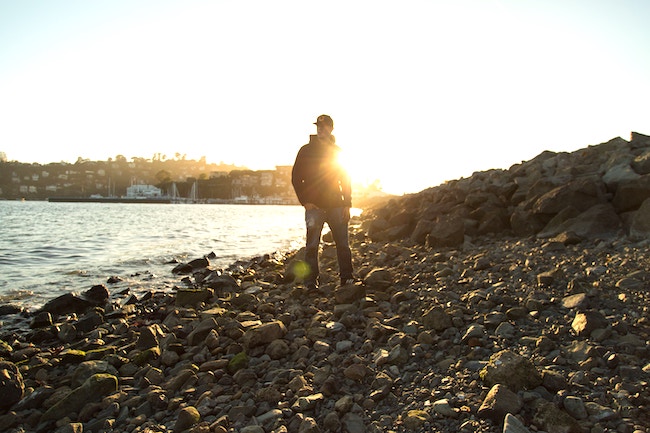
BS”D
Volume 33, No.50
28 Elul 5779
September 28, 2019
Sponsored by
the Greengart and Lerman families
in memory of father
Zvi ben Ben Zion a”h (Harry Greengart)
Irving and Arline Katz
in honor of the Bar Mitzvah of
their grandson Nissim
Our Parashah opens: “You are standing today, all of you, before Hashem, your Elokim.” R’ Yissachar Shlomo Teichtal z”l Hy”d (1885-1945; rabbi of, and Rosh Yeshiva in, Pieštany, Czechoslovakia) writes: I was lying in bed last night thinking about this verse in connection with the Midrash that comments on the verse (Shmot 3:14), “I Shall Be As I Shall Be.” Says the Midrash: “‘I Shall Be’ for the individual, and ‘I Shall Be’ for the many.” This teaches, R’ Teichtal explains (based on the writings of the Maharal of Prague z”l), that Hashem relates differently to the individual than He does to the nation as a whole. Every individual has Bechirah / free choice, and Hashem relates to each individual based on the choices he makes. In contrast, the nation as a whole has no free choice. Rather, Hashem will reign over us no matter what.
R’ Teichtal continues: The word “today” connotes eternity, as Midrash Tanchuma comments on the verse (Devarim 26:16), “Today, Hashem, your Elokim, commands you . . .” — “The commandments should be new in your eyes as if they were given today.” In other words, the Torah was not given once; it is given over-and-over again, for all eternity. Our verse therefore means, “For all eternity, you are standing before Hashem.” Why is that so? Because I am speaking to “all of you.” (Mishneh Sachir Al Ha’Torah)
********
“For this commandment that I command you today – it is not hidden from you and it is not distant.” (30:11)
R’ Moshe ben Nachman z”l (Ramban; 1194-1270) writes that this refers to the Mitzvah of Teshuvah.
R’ Moshe Zuriel shlita (former Mashgiach Ruchani of Yeshivat Sha’alvim) observes that many people find Teshuvah difficult. We all feel as if we generally do what is right. Moreover, our Sages teach us that we should approach the Day of Judgment with the confidence that we will emerge vindicated and triumphant.
Nevertheless, R’ Zuriel writes, if we understood the depth of Hashem’s judgment, we would not be so complacent. Who can claim that he has not offended his spouse, family, friends, neighbors, co-workers, etc. during the year? Do we realize the seriousness of this sin? Do we repent for it properly?
We are all familiar with the Halachah that Teshuvah does not atone for a sin against another human being unless the offended person is appeased. We therefore are used to asking our friends, “Do you forgive me?” And, of course, they say, “I forgive you.” But do they really forgive us, or are they simply too embarrassed or uncomfortable to tell us that they still feel hurt? Do we take steps to right the wrongs that we have committed, or are we satisfied with a pro forma apology?
Moreover, we forget that appeasing those we have offended is only the first step. We still must appease Hashem when we offend His loved ones. The Gemara relates that a great sage was severely punished because he came home late from Yeshiva and caused his wife to shed one tear as she sat by the window watching for him. She would not have wanted him to be punished, but Hashem does not tolerate even a small show of insensitivity from a person of stature. Even the fact that he was preoccupied with Torah study did not save him. True, we are not on the stature of that sage, but our sins are not as subtle either.
Even when a person hurts another with the best of intentions, he is punished. We read at the beginning of Shmuel I (the Haftarah for the second day of Rosh Hashanah) that a man named Elkanah had two wives–Penina and Chana. Penina had children and Chana did not. Our Sages say that Penina used to goad Chana to pray for children by asking questions such as, “Have you bathed your children for school today?” Penina had the best of intentions; she wanted Chana to cry from the depths of her heart so that she too would give birth. And it worked! Nevertheless, Penina was punished severely.
And who has not offended his parents?! The Halachic work Chayei Adam (67:3) writes that even thinking negatively about one’s parents is a grave sin about which the Torah says (Devarim 27:16), “Cursed is one who degrades his father or mother.”
Therefore, concludes R’ Zuriel, let us all realize that we have sinned grievously. Let us ask for forgiveness from those we have offended and from their Father in Heaven. Then we truly will be able to enter Rosh Hashanah with confidence. (Otzrot Ha’Torah p. 664)
********
Rosh Hashanah
“Cherdat adam yeetain mokaish, but one who trusts in Hashem will be encouraged.” (Mishlei 29:25)
R’ Nosson Lewin z”l (1857-1926; rabbi of Rzeszów, Poland) writes: Many commentaries translate the Hebrew phrase above as, “Man’s fear/fear of man will add/make a snare.” According to this, King Shlomo is teaching that, when a person is afraid, his fear itself creates stumbling blocks; his lack of confidence will cause him to lose his wits and be unable to cope. In contrast, one who trusts in Hashem has nothing to worry about.
R’ Lewin continues: These are true sentiments, but they cannot be what our verse is teaching. “Cherdah” / fear, he explains, is a feminine noun. Thus, if “man’s fear” or “fear of man” were the phrase’s subject, the verb would have been conjugated “Teetain,” not “Yeetain,” which is the masculine form.
Rather, writes R’ Lewin, the subject of the phrase is the “Mokaish” / snare. The phrase means: “Man’s stumbling blocks will cause fear.” Why does a person experience fear? It is only because of the sins with which he is burdened. In this vein, the Gemara (Berachot 60a) teaches: A certain student was walking behind Rabbi Yishmael the son of Rabbi Yosé in the marketplace of Zion. Rabbi Yishmael saw that the student was afraid of something, and he told him, “You must be a sinner, for the verse (Yeshayah 33:14) says, ‘Sinners are afraid in Zion’.” [Until here from the Gemara.] If not for man’s sins, explains R’ Lewin, he would never be afraid; fear is the manifestation of man’s subconscious knowledge that he deserves punishment. This, R’ Lewin explains, is the message of the phrase in the Rosh Hashanah prayers [Artscroll Machzor p.308]: “If [you judge] as we deserve, the heart will shudder. The springs of my eyelids will flow like a channel.”
R’ Lewin adds: We are in the midst of the days of judgment, but Hashem’s compassion is great. In fact, the Day of Judgment is a day of salvation, for Hashem is not only a righteous judge, He is also a merciful father. Our fear, he writes, can be a source of confidence, if we use it as a motivation to re-accept the Mitzvot and improve our compliance. (Bet Nadiv p.52)
R’ Avraham Yitzchak Hakohen Kook z”l (1865-1935; first Ashkenazic Chief Rabbi of Eretz Yisrael) comments on the Gemara quoted above: Man’s fear is a reaction to being out-of-tune with the world. When one has not sinned, he is in harmony with all of existence; therefore, he experiences no fear. In contrast, one who sins detaches himself from existence as a whole, and this causes him to experience fear. (Ain Ayah: Berachot 9:174)
********
Tehilim
Siddur Avodat Yisrael cites a custom to recite Psalm 81 on the Shabbat on which Parashat Nitzavim is read. Accordingly, we present here verses from, and commentaries on, that Psalm.
“Blow the Shofar at the moon’s renewal, at the time appointed for our festive day, because it is a Chok /decree for Yisrael, a Mishpat / law of the Elokim of Yaakov.” (Verses 4-5)
R’ Gamliel HaKohen Rabinowitz-Rappaport shlita (Rosh Yeshiva of Yeshivat Sha’ar Ha’shamayim in Yerushalayim) writes: It is a general rule that the name “Yisrael” refers to the Jewish People when they are on a higher spiritual level, while the name “Yaakov” refers to the Jewish People when they are on a lower spiritual level. Says our verse: For a “Yisrael” type of Jew, blowing the Shofar is a “Chok,” a decree with no apparent reason. Such Jews do not need reasons to perform Mitzvot; it is enough that G-d said so. In contrast, for a “Yaakov” type of Jew, blowing the Shofar is a “Mishpat,” a law with a reason. What is the reason for blowing the Shofar? Because on this day Hashem is judging us and it is necessary to “confuse” the prosecuting angel through the Shofar.
Alternatively, writes R’ Rabinowitz, the last phrase of the verse can be read, “A Mishpat / judgment of the Elokim of Yaakov.” Hashem Himself is, so-to-speak, judged on Rosh Hashanah, for our Sages teach that He feels our pain. Thus, whatever happens to us will, so-to-speak, happen to Him as well. R’ Rabinowitz adds: If I have erred, may the Good G-d forgive me. (Tiv Ha’Tehilot)


